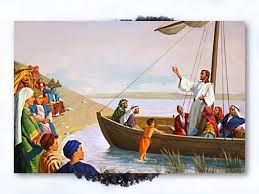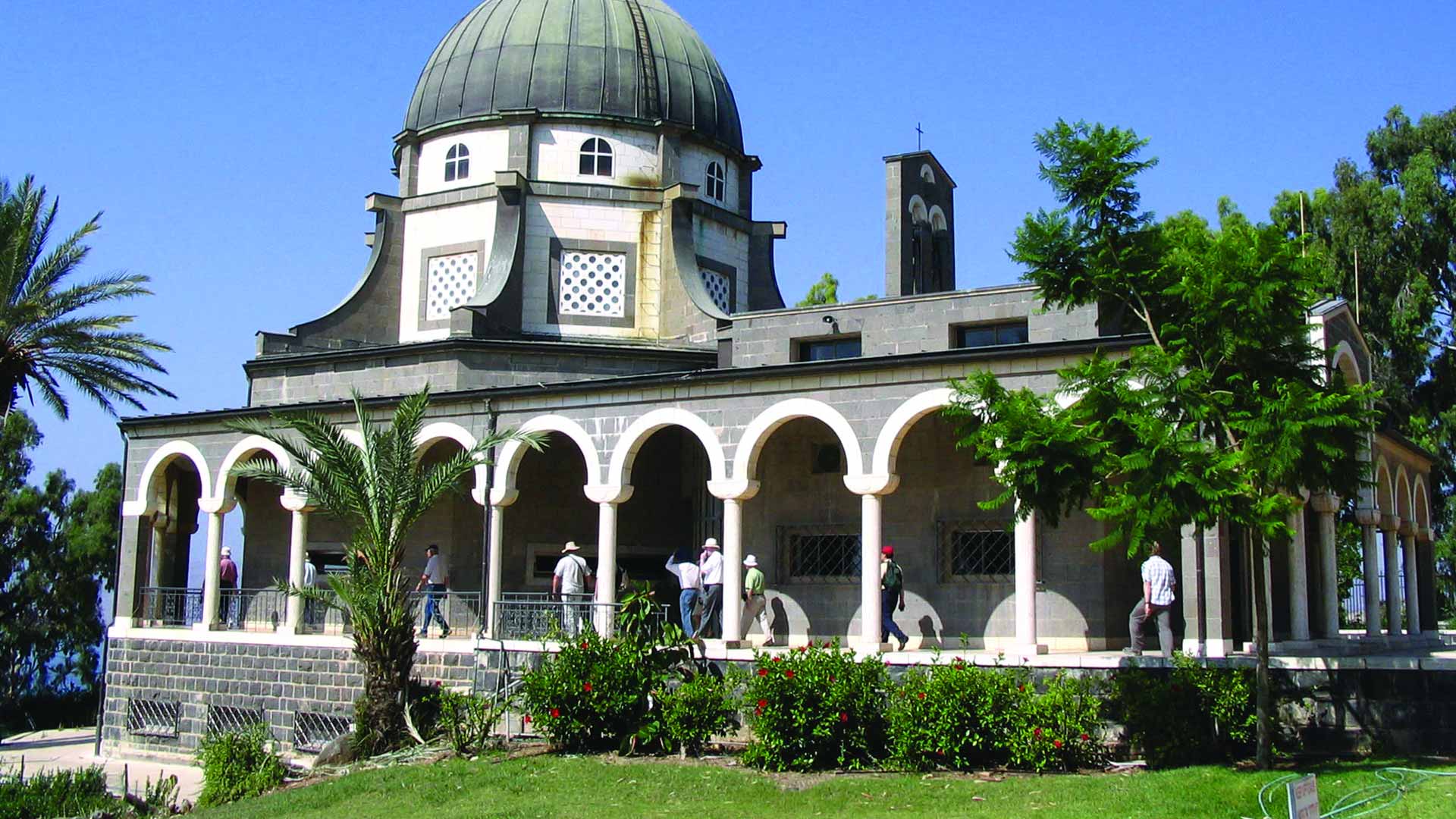From Earth to Eternity
This Sunday’s readings[1], short but powerful, provide an apt runup to Lent that is three days away. While the first and third readings help us reflect on the nature of earthly life, the second puts the spotlight on our eternal destiny.
The Book of Sirach (also called Ecclesiasticus, as it was frequently read in churches) captures some eternal truths. Written two centuries before Christ, by Jewish scribe Ben Sirach, it points to God as the fount of all knowledge. This is pertinent, particularly as we reel under foolish diktats that can trigger a world war. Can there be any doubt that ‘violence covers the mouth of the wicked’? (cf. Prov. 10:11) So, we must beware of those who craftily try and win friends and influence people; since sweet talk masks some people’s intentions, we must wait until they are unmasked by their actions. To know who and when and why, only in God we trust; He alone can discern the workings of the human heart.
For our part, could we examine the nature of our thoughts, words and deeds? If we cannot control our thoughts, let us at least keep guard on our tongues, and our actions will take care of themselves. And what of our relationships? Do we listen more than we speak, or do we pretend to teach what we ourselves need to learn! Our Lord has said, ‘No disciple is superior to the teacher; but when fully trained, every disciple will be like his teacher.’ When we pattern ourselves after the Master, rather than after a local celebrity or star, we grow in self-knowledge and will readily thank God night and day. The Psalm says, ‘It is good to give thanks to the Lord, to sing praise to your name, O Most High; to proclaim your kindness at dawn and your faithfulness throughout the night.’

After all, whether we live or die, we belong to the Lord. It behoves us to proceed with humility, gentleness, and patience, and to accept each other with love. And whether trained or not, we are not to look down upon the other, or to try and remove a speck from another’s eye when our own is laden with a bar! We have to particularly mind our tongues; they are mightier than our hands when it comes to breaking a heart. ‘The good man out of the good treasure of his heart produces good, and the evil man out of his evil treasure produces evil; for out of the abundance of the heart his mouth speaks.’ So, let our thoughts, words and actions tell of our relationship with the Lord.
When we as followers of Christ avoid all wrongdoing, we don’t turn passive! On the contrary, we get to focus on our mighty vocation: to build God’s kingdom. Through baptism, we are called to be – like Jesus – priest, prophet and king: to bring others to God and God to others; to give voice to the voiceless, and to use our time and talent for the common good. That is a threefold call to holiness. Needless to say, after having fought the good fight, finished our course, and kept the faith, there will be laid up for us a crown of justice. (cf. Tim 4:8)
Which is why St Paul is not intimated by death: perishable beings turn imperishable, and mortals put on immortality, says he. His treatment of the theme is so engaging that many a play and novel, song and film have celebrated the verse ‘Death is swallowed up in victory / O Death, where is thy victory? / O Death, where is thy sting?’ Particularly striking is John Donne’s sonnet which, while personifying death, humorously yet profoundly argues against its power. And while the sixteenth-century English clergyman and metaphysical poet ends his devotional lyric with a strong prediction: ‘Death, thou shalt die!’; the Apostle of the Gentiles ends his letter with a warm assurance: ‘Be steadfast, immovable, always abounding in the work of the Lord, knowing that in the Lord your labour is not in vain.’ Interestingly, thoughts about that treasure which lies in Heaven can give our life on earth an exciting new direction.
[1] Sir 27:5-8; Ps 91:2-3,13-14,15; 1Cor 15:54-58; Lk 6:39-43
The Challenge of Loving
Today’s readings (Sam 26:2.7-9, 12-13, 22-23; Ps 102, 1-2, 3-4, 8, 10, 12-13; 1 Cor 15:45-49; Lk 6:27-38) present a great challenge to our life of faith: to live as Jesus lived. David’s posture prefigures Jesus’ teaching about mercy and forgiveness, love and compassion. It is an invitation to follow a whole new way of life, even if the world dubs it an impossible dream, or just plain folly.
David was an outstanding general in the army of Saul, the first king of Israel. Envious of his popularity, and seeing him as a threat to his kingdom and dynasty, Saul plotted against David but fell into his hands instead. David and his military leader Abishai literally walked into Saul’s encampment in the dead of night and returned with Saul’s spear and jar of water; they could well have killed him, but David chose not to put forth his hand against the Lord’s anointed. David was indeed a man after God’s own heart.
David’s magnanimous gesture stands as a model of neighbourly love. Jesus, a descendant of the same royal house, twenty-eight generations later, weaves a whole new philosophy about love when he says: ‘Love your enemies, do good to those who hate you, bless those who curse you, pray for those who abuse you.’ No doubt, it sounds crazy to offer the other cheek; to let others take away our goods with impunity, and to be fools for Christ. But as we learn from David, love of God and neighbour is the only perfect formula.
It goes without saying that the Fall has made it difficult for man to put God and others before self. Our slavery to sin is what Jesus wants us to root out; He has shown the way, by dying for our sins. And we, who are unlikely to die on the cross, could we at least carry it with a spirit of loving sacrifice? It is not easy, especially if we depend on our own strength; but with God’s help, it is not impossible.
But how do we do it? By dying to ourselves in the ups and downs of daily life; by showing mercy and love to others; by making a positive sacrifice for the love of God. In other words, He must increase; we must decrease. Or, to paraphrase Padre Zezinho, the Brazilian songwriter and communicator, we have to love as Jesus loved, dream as Jesus dreamt, think as Jesus did, live as Jesus lived; we must feel what Jesus felt, smile as Jesus smiled, and surely at the end of day we will sleep to our heart’s content.
‘The Lord is compassion and love, slow to anger and rich in mercy.’ We are called to be and do the same. According to St Paul, ‘just as we have borne the image of the man of dust, we shall also bear the image of the man of heaven.’ That’s a promise. It is not for us to fret about achieving perfection; it behoves us to only keep trying. Our Father in Heaven, who is rich in mercy and love, knows the vicissitudes of our earthly and spiritual journey. He wants us to make a difference, by loving not only those who love us but to show mercy and love as God does, fully and unconditionally.
If that still comes across as an illusion, or a dream not worth chasing, it is because modern man is so self-absorbed that he thinks of realising himself through self-love, self-interest, self-promotion; it’s a lot about ‘I, me and myself’. What a far cry from the life that God urges us to follow: a life spent in the service of others; a life of prudence, justice, temperance, fortitude, mercy, compassion, faith, hope, and love. This is the real stuff of life, the real challenge; everything else is illusion.
When our God is the Lord!
How many of us sincerely believe that God’s law is a boon? Sometimes, we complain about it, shun it, or even have the temerity to think it a bane. We seem to put our trust and find meaning only in laws that we have devised, when actually they are far from fool-proof.
In contrast, God’s law is a blueprint for happiness; it was always meant to be so. That the Chosen People failed to see it that way and dishonoured their covenants is a different matter. God in His love sent prophets to salvage the situation. One of them was Jeremiah (700 B.C.), who minced no words when he said, ‘Cursed is the one who trusts in human beings, who seeks his strength in flesh, whose heart turns away from the Lord.’ But then, they turned down prophet after prophet, and threw a spanner in God’s plan of salvation.
Felix culpa! It paved the way for the New Covenant. Jesus came into the world as the new Adam, to form a new humanity. He infused new life into the law. He liberated it from false interpretations; he disapproved of sticking to the letter to the detriment of the spirit of the law; he condemned practices that were merely external and ritualistic. What is more, Jesus pointed to what should be at the heart of the law: love of God and love of neighbour. Finally, by his own death and resurrection, He created a covenant of love.
In the course of His earthly ministry, Jesus touched upon the topic of happiness – an ideal very close to the human heart. He wished to show how God’s law can be an instrument of human happiness. St Luke collected Jesus’ thoughts on the subject, titling it ‘Sermon on the Plain’ (corresponding to what St Matthew does, in a more detailed manner, in the ‘Sermon on the Mount’). In a few pithy statements, Jesus points to sets of people that are usually thought to be ‘unhappy’, and he pronounces them happy or blessed.
Jesus’ pronouncements appear contradictory and bewildering: how can the poor, the hungry, the suffering and the reviled ever be idealised? Which of us would like to be in their shoes? It simply goes against the grain, doesn’t it? But the key to the riddle lies in recognising that God does not think as we do; or rather, human ways have long moved away from God’s ways. In the heat of life’s battles, we see distorted images of reality; God in his wisdom sees it right. That’s good enough reason to let ourselves be guided by Him who is the Author of Life, to surrender to Him who is the Master Physician and can fix all problems. If in all humility we do God’s will, the rest will be given unto us: the joy of life and the promise of eternal salvation.
Jesus assures the poor, the hungry, the suffering and the reviled that their troubles will not go in vain. After all, don’t they trust the Lord better than do the rich, the satiated, the merrymakers and the sought-after? Jesus’ “poor” are those who do not covet earthly riches but set their eyes on the treasure that awaits them in Heaven; the “hungry” that He talks about are those who crave for the Bread and Water of Life; they “weep” who are deeply sorry for their sins; and they are “reviled” who side with the truth rather than playing to the gallery.
Jesus follows up the four beatitudes with four maledictions, as though to reinforce what He had couched in milder language. And when the rich, the satiated, the merrymakers and the sought-after understand that they have had their day is when it dawns on us that none can have it both ways. And who knows, maybe the rich, the satiated, the merrymakers and the sought-after were not even at peace with themselves; they only pretended to feel blessed.
Therefore, only they can be truly blessed whose God is the Lord.
(Banner: Church of the Beatitudes, Israel)
A Road Well Taken
Selecting the right path, both literally and figuratively, is the central theme of American poet Robert Frost’s ‘The Road Not Taken’. The poem was prompted by the continual state of indecision faced by an English writer-friend of his. When the two went for walks, his friend always found it difficult to choose a route, and even after all that fuss was over, he sighed over the opportunities missed on the other route.
The poem popped into my mind as I was going through the Mass readings. We have Isaiah (6:1-2A, 3-8), Paul (1 Cor 15:1-11) and Peter (Lk 5:1-11), three Biblical heavyweights. Like Jeremiah last Sunday, they too faltered at first, then made a leap of faith. They received their calls quite differently but, animated by the love of God, they had the same goal in mind. And unlike the man in the poem, they never regretted the road they had taken. In fact, they were convinced, they persevered under trials, and received the crown of life.
Isaiah receives his prophetic call at the feast of Atonement. In the temple, he had visions of the heavenly court. He did not get to see God face to face; he only glimpsed the train of his garment and heard the quake and the smoke – signs of God’s presence. As he heard the angels sing the Sanctus (the same that we now hear at Mass) he began to feel anxious about his sinful state vis-à-vis God’s presence. He anticipated death but instead was healed by the touch of a burning coal. Fired thus with God’s spirit, he gave his fiat: ‘Here I am! Send me!’
Isaiah was ready to go as God’s messenger, and so was Saul after he became Paul. Initially a persecutor of the Christians, Paul’s dramatic encounter with Jesus on the high road to Damascus changed it all. He offered himself without reservation to God’s service. He undertook four missionary journeys and came to be called ‘Apostle of the Gentiles’. And as there were misgivings about Jesus’ death and resurrection, Paul proclaimed it as an undeniable fact and, for him, a life-changing experience. About the Resurrection, which is at the heart of the Christian message, Paul said emphatically that, without it, ‘our faith is futile’.

Whereas Isaiah was timid, and Paul who was conceited became humble after his personal experience of God, Simon Peter for his part was a rustic character. Jesus, however, did not look at his intellect but at his heart. A fisherman and unlettered though he was, Jesus made of him a fisher of men. Peter eventually became greater than all men of letters put together, schooled as he was in the knowledge and the love of God. He was in awe of Jesus, and on hearing His soothing words – ‘Do not be afraid. You will catch people from now on’ – Peter and his fellow fishermen James and John left everything and followed Him.
You and I, who are called to live out our baptismal vocation of priest, prophet and king, where do we stand? Do we believe that we should leave everything and follow Him? Or, do we, like the poet, see two paths, unsure which to choose?
Really speaking, Christians have only one path before them: to be messengers of God’s salvation and grace by the apostolate of presence. We are called to be the light of the world and the salt of the earth, such that the temporal is soaked in the Christian spirit. Indeed, we must not let ourselves be blinded by the city lights; we must not be lured by ideologies that lead us astray from the path of truth and justice; we must rather be committed to the only life-giver, Jesus Christ. He is the Way, the Truth and the Life. He shows us the road to Eternal Life. This cannot but be a road well taken.
The Splendour of our Vocation
Today we have a feast of scriptural texts about our prophetic vocation: Jer. I, 4-5, 17-19; I Cor. 12, 31-13 13; Lk 4, 21-30.
Years ago, I froze in my tracks when I heard God’s words to Jeremiah: ‘Even before I formed you in the womb, I have known you; even before you were born, I had set you apart, and appointed you a prophet to the nations.’ There is, undeniably, a rare touch of intimacy here that makes us feel special; but do those words also place a heavy responsibility on our shoulders, holding us accountable for our role as prophets?
On the other hand, without that bolt from the blue, wouldn’t we end up becoming complacent, lukewarm, mediocre? When God’s voice resounds in our minds and hearts, we are in awe of His majesty and mystery. His declarations also provide the shot in the arm that we so badly need, timid and weak as we are, and at risk, too, like Jeremiah was. God’s promise, then, to make of us ‘a fortified city, a pillar of iron with walls of bronze…’ feels so good and changes everything.
There is no denying that without aid from above, we are nothing. Notice the distressing experiences Jesus underwent in his hometown Nazareth. At first, ‘all agreed with Him and were lost in wonder, while He kept on speaking of the grace of God.’ They just stopped short of recognising His divine origin. And no sooner had they heard hard truths proceeding from the mouth of the Son of God, they became indignant and were even ready to throw Him down the cliff.
That’s a huge eyeopener; the nature of the public ministry and the ways of the world can indeed be baffling. Yet, we have to keep going; we have nothing better to do than what God has whispered in our ears. He expects no superhuman effort, nor should we expect to achieve success as the world looks at it; it just suffices to exercise our apostolate where we are planted. The only ammunition we need to carry is Love. No language, no prophecy, no knowledge, nothing can get round the devious ways of the world as love can.
St Paul’s ode to love is one of the most sublime of Christian texts and Jeremiah’s testimony one of the most impressive as regards the Christian vocation. Interestingly, they are both quoted at nuptial masses – for, after all, marriage is a very special vocation! It is no doubt fraught with risk and challenges, but then, very few are known to have given up before the miracle happened. Jesus too didn’t give up on His Bride, the Church. Why should we give up on the Church, our Mother, and all that she teaches us?





